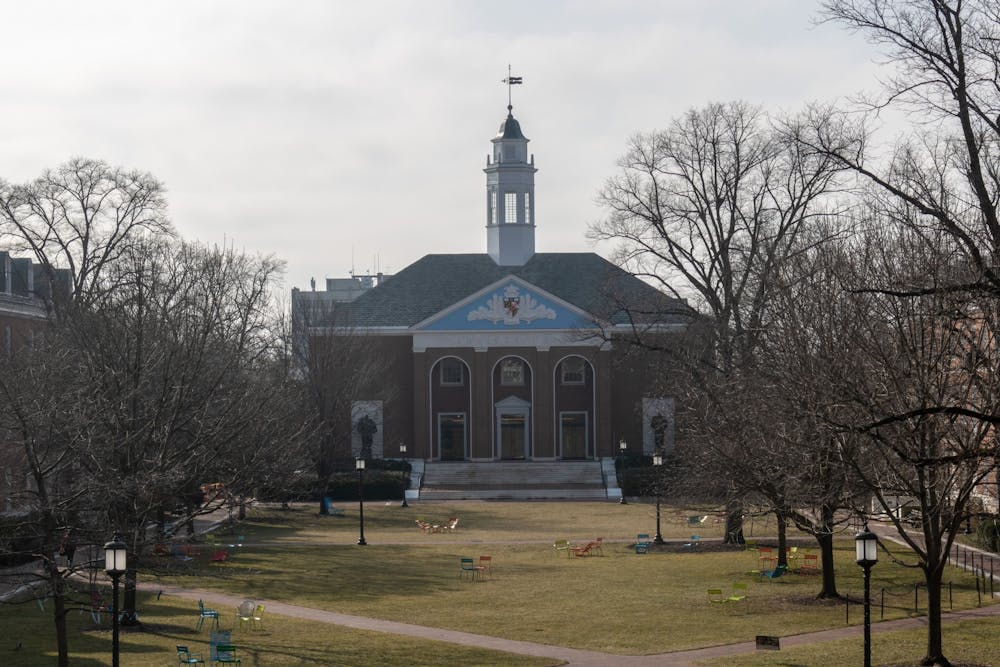The Student Government Association (SGA) held its first meeting of the school year on Sept. 1 via Zoom. Before the meeting, SGA discussed feedback from students, including mishandled belongings that were stored by the University over the summer, as well as coronavirus (COVID-19) testing capacity.
After announcing that classes would be held virtually last March, the University hired professional movers to clear out students’ dorms who was unable to travel back to Baltimore to retrieve their belongings. As students returned to campus this fall, many students reported that their belongings were missing, stolen or broken.
Executive President Sam Mollin addressed some concerns about how the University haphazardly stored and returned belongings.
Mollin explained that the University is taking action to rectify the situation. The storage facility at the Bayview Campus was shut down to better organize student belongings. If students believe that items were stolen, they can file a security report to the University.
He emphasized the importance of filing a security report for missing belongings.
“The more security reports that the University gets, the more likely they’ll be able to actually establish a pattern of behavior that they can use to figure out who [committed the thefts] and how they could better address it,” Mollin said.
SGA also discussed a website for survivors of sexual assault and misconduct that outlines University resources, both on campus and online. Senior Class Senator Julia Zeng presented this site on behalf of the Gender and Sexual Violence Committee under the Women and Gender Minorities’ Caucus (WGMC). The website was designed on Wix but will be moved to CampusGroups, the new platform for student organizations at Hopkins.
“A lot of the information that we compiled is available online, but it’s in very disparate areas, so we wanted to have one centralized area where people could easily find these resources,” Zeng said. “We also wanted something created by students for students so that there’s that kind of trustworthiness of this resource.”
Zeng noted that the website contains a series of blog posts with testimonials, advice and stories from the Hopkins community. She hoped that the blog posts will provide a sense of community amongst students who might want to seek out that kind of environment online.
“We wanted to be a community-based, ever-growing kind of resource. Hopefully it’ll undergo further [revisions] in the future so people can share their experiences with these actual resources,” Zeng said.
Regarding COVID-19 precautions, Executive Vice President Mehak Ali and Senior Class Senator Ananya Kalahasti questioned how the University would monitor student activities and misconduct off campus.
Calvin Smith, the director of Student Leadership and Involvement, explained that the University will continue to monitor the area as it always has, learning about acts of misconduct from third-party sources.
“I’ve already received two anonymous emails from concerned students or neighbors who are taking pictures of you all and sending them back to the University. So while you all may be engaging in certain stuff in the privacy of your home or in your yards, concerned folks are sending information back to us,” Smith said.
Smith directed students who wished to report misconduct anonymously to fill out a form on the University website SPEAK2US.
“That system is run by a third party, and when information comes to it, they share it with us,“ Smith said. “Unless you tell us what your name is in the complaint, we have no way of knowing who it is — that goes for COVID, that goes for Title IX complaints [and] that goes for harassment and discrimination. Any type of complaint or issue, you can put it on SPEAK2US.”
Senior Class President William Cho questioned the accessibility of testing and testing capacity, pointing out that as of now, testing is only available to those who experienced symptoms of COVID-19.
“If you have symptoms, you can set up an appointment on the med campus, but that's a trek in itself. That’s not realistic. We really need accessible testing,” Cho said.
Junior Class President Nathan Mudrak added that he believes that Hopkins should offer asymptomatic testing available on campus.
“I would like to exist in a world where if you have reason to believe that you have been exposed to COVID, you can get a test,“ Mudrak said. “I think the idea that you always need to have symptoms to get a test is something we need a little more leniency upon.”
Mollin suggested that the University could inform students about testing sites located in Baltimore as a way to combat the lack of testing on campus.
“It would be better to have it on campus, arguably, but that's also something we could do,” he said.





